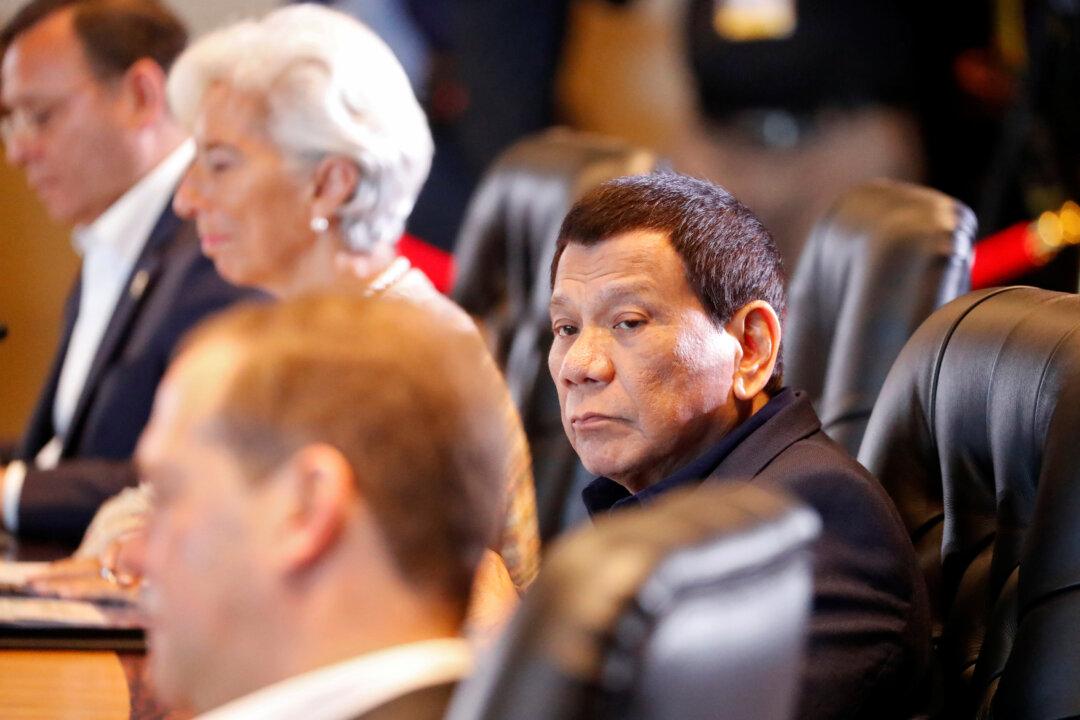MANILA—Philippine opposition senators have demanded President Rodrigo Duterte reveal details of joint energy exploration plans with China, warning such a deal risked affirming Chinese territorial claims that are not recognized under international law.
Early this year, the two countries set up a joint panel to work out how to explore offshore oil and gas in areas that both claim, without addressing the explosive issue of who has the sovereign rights to them.





